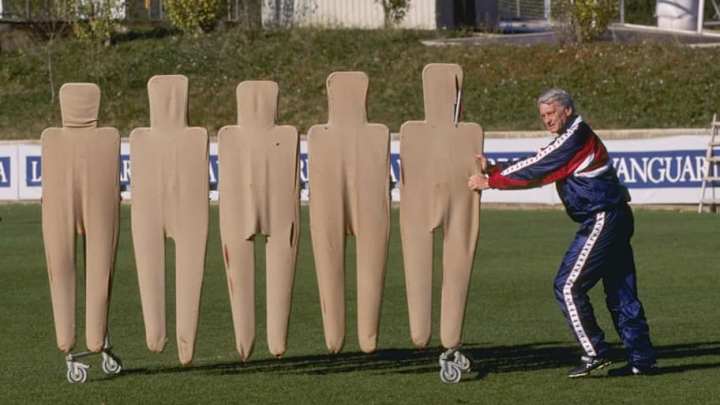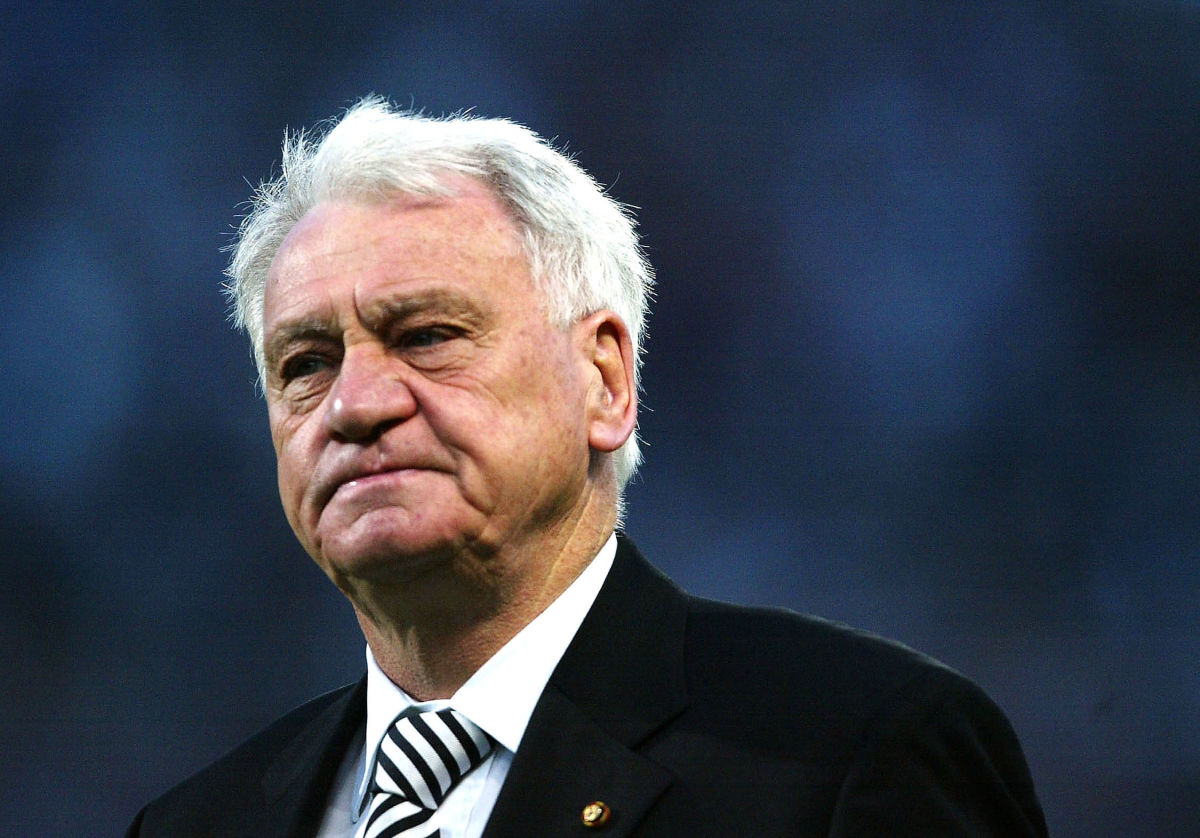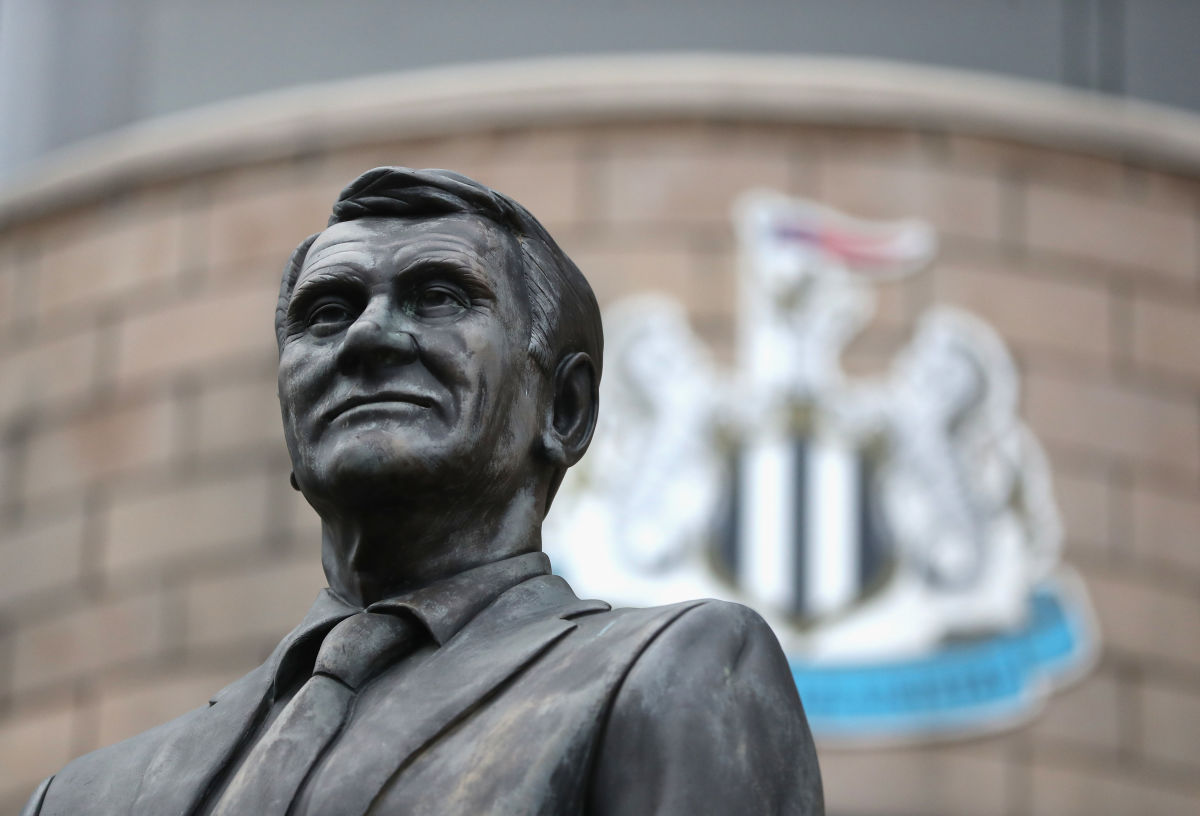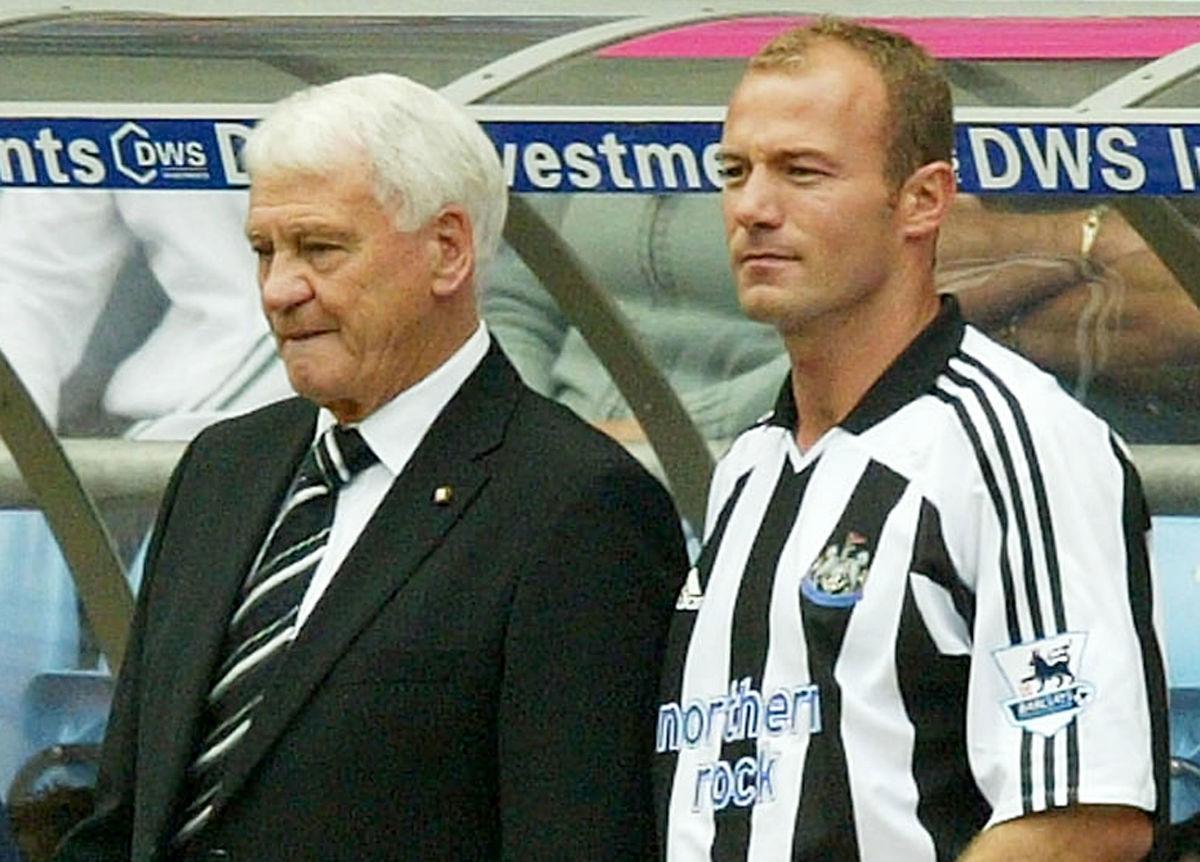World Cup Countdown: 7 Weeks to Go - Is Sir Bobby Robson England's Greatest Ever Manager?

When mulling over the question of England's greatest ever manager, Sir Alf Ramsey is the most prominent name that springs to mind. A strong-minded man who still to this day holds the title of leading the Three Lions to their only World Cup success. Although things turned sour between himself and the Football Association in the end, legendary status will never be taken away from the Yorkshireman whose accomplishments may never be repeated.
However, there is another. Maybe one that did not reach the heights of Ramsey in terms of success, but certainly one that left a legacy of similar ilk; a manager whose influence on not just English football, but the sport around the world, will last throughout time - Sir Bobby Robson.

England's failure to get past West Germany in the 1982 World Cup second round spelled the end of Ron Greenwood's tenure as national boss; opening the door for a period of eight years that would be seen as the country's most successful spell since Ramsey's time, and yet defined by a single loose-tongued rant from Football Association chairman Bert Millichip.
But despite Robson's name sitting firmly in the conversation of England's greatest manager, it was not always plain sailing under the north-eastener's watch, particularly, in the early days.
Still revelling in the recent fallout of UEFA Cup success with Ipswich Town, the Tractor Boys' managerial royalty stepped into the Wembley Stadium position with expectations high. But after dropping Kevin Keegan from the national squad and failing to qualify for the 1984 European Championships as a result of failing to overcome Denmark, it looked as though another false promise had been handed to the English public.
The Sun, after recently adopting its self-made image as the pulse of the man on the street, made it their mission to oust Robson following the Three Lions' failings - a campaign that would only go to fall on deaf ears with those at the FA, whose determinedness to spite the tabloid in a new, somewhat blameless era of journalism, effectively kept the County Durham-born man in a job.
However, following his early setback at the hands of the Danish, Robson would go on to carry a tradition that remains today; dominance in qualification. The master tactician would never taste defeat again in a competitive match during the run-up to a major tournament, nor lead England to a football-free summer. And maybe that record played a small role in what ensued in 1986; Maradona and the Hand of God.
"It wasn't the Hand of God, it was the hand of a rascal," an incensed England manager retorted to the Estadio Azteca press room after witnessing his side being dumped out of the World Cup quarter-finals by two pieces of very different brilliance. The first being the ability to successfully deceive the officials, and the second a goal truly worth a godly title.
"I would not be proud to say that I won a World Cup with a 'Hand of God.' I wouldn't be able to tell my son that"
— Football Tweet ⚽ (@Football__Tweet) June 22, 2017
- Dani Alves on Maradona. pic.twitter.com/VyU4u1ah6V
In the two years that followed, England struggled to get over the disappointment, albeit qualifying for the 1988 European Championships, yet crashing out of the then eight-team tournament bottom of their group after defeats from Republic of Ireland, Holland and Russia.
But then came the most inspiring chapter of 'Sir Bobby's' tenure; one that would restore both pride and excitement back into England's football, yet a spell which concluded all too prematurely. Italia '90; the Three Lions' most successful showing at a World Cup tournament since 1966, and masterminded by one man.
In truth, having arrived in Italy as underdogs, Robson's men got off to a stuttering start against the Republic of Ireland, but steadily established momentum with wins against Egypt, Belgium and then, in dramatic fashion, Cameroon. West Germany, the outfit that would go on to win the tournament against a backdrop of reunification, was all that stood between England and only their second World Cup final in history.
What unfolded has often been described as the Three Lions' best performance under Sir Bobby, yet it was not enough to see off the dominant Germans, with a penalty shoot-out proving the difference. However, maybe more significantly were the words of FA chairman Millichip leading up to the tournament in 1990.
"The irony was that just before the 1990 World Cup, the chairman, Bert Millichip finally lost patience, let his tongue run away with him, and said Robson either had to win the World Cup or go," former FA secretary Graham Kelly recalled. "Bobby reacted by approaching PSV Eindhoven. Had this not happened, he would have served another four years, believe me."
Had those words not left the hierarchical-leading Londoner, England could have been preparing for a time in history where the nation's legacy to the game was re-written; a potential to don two starts over the Three Lion crest this summer in Russia rather than only Ramsey's. Yet, as it was, Robson indeed went to Holland, before spells in Portugal, Spain and finally finishing his managerial career at Newcastle United.

In 2009, Sir Bobby finally lost his long battle with cancer, passing away at the age of 76 in his home of County Durham. In a way, four years prior, it was quite fitting Robson would entitle his autobiography "Farewell But Not Goodbye", as even though one of the most loved football manager's in the country's history indeed has left us, his memories have not.
"A man of action," Jose Mourinho remembered him. Pep Guardiola claimed: "To win titles in Holland, Portugal, Spain; Bobby is special. When I saw him, I wanted to become a manager."
"He saved Newcastle; he also saved my career," were the words of Alan Shearer, while Gary Lineker insisted: "You'd go to the limits for him."

However, if one description sums the impact Sir Bobby had on the game of football, it's Paul Gascoine's of his former manager.
"You talk about farther figures; the guy was phenomenal for me. He was more than a manager; he was more than anything."
When mulling over the question of England's greatest ever manager, there are indeed two names that come to mind. However, in terms of the greatest English manager of all time, that title belongs to only one: Sir Bobby Robson.
